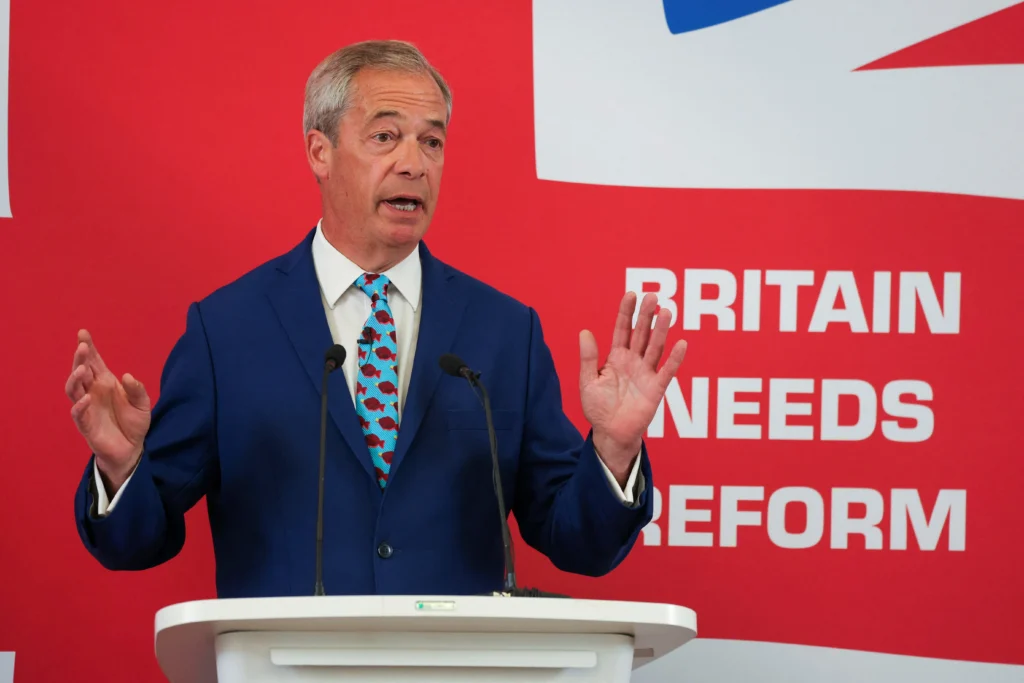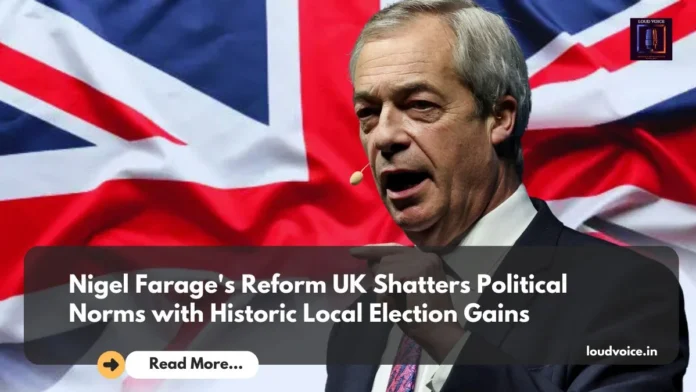Key Takeaways
- Nigel Farage’s Reform UK stunned the political establishment in the 2025 local elections by clinching more than 600 council seats and narrowly capturing victory in the high-stakes Runcorn and Helsby by-election.
- The party’s success reflects widespread voter dissatisfaction with traditional parties, particularly on issues like immigration, cost of living, and governance.
- Reform UK’s rise signals a potential realignment in British politics, challenging the longstanding dominance of Labour and the Conservatives.
A Political Earthquake: Reform UK’s Unprecedented Surge
In a turn of events that few political analysts predicted, Reform UK—helmed by Nigel Farage—has stormed the 2025 local elections with a wave of victories across the nation. The party not only made substantial gains in local councils but also clinched a critical parliamentary seat in Runcorn and Helsby by a margin of just six votes. This was no ordinary win. The constituency, previously held by Labour, was considered a bastion of traditional politics. Reform UK’s victory here sent a clear message: the British electorate is hungry for change.
Farage, never one to shy away from bold declarations, described the outcome as a “seismic change” in the political arena. The scale and symbolism of the results have catapulted Reform UK from the fringes to what many now see as the heart of British opposition politics.
Dissecting the Results: A Closer Look at the Numbers
Reform UK’s performance was nothing short of historic. The party secured over 600 council seats, a meteoric rise considering its relatively recent emergence on the political scene. This sweep wasn’t limited to isolated areas but spanned both urban and rural regions, underscoring a nationwide shift.
Even more telling was the party’s razor-thin win in the Runcorn and Helsby by-election. This victory, although won by a mere six votes, speaks volumes about Reform UK’s increasing penetration into regions traditionally dominated by Labour.
Nationwide polling also places Reform UK at the forefront of the vote share, with an estimated 30%, leapfrogging both Labour and the Conservatives. This isn’t just a protest vote—it represents a fundamental shift in public trust and expectation.
Voter Sentiment: A Shift Driven by Discontent
Why are voters flocking to Reform UK? The answer lies in a mix of frustration, fatigue, and fear—emotions that have reached a boiling point across the UK.
- Immigration Policies: A large section of the electorate believes the government has lost control over immigration. Reform UK’s strict stance on border control has resonated with those who feel overwhelmed by changing demographics and the pressure on public services.
- Economic Pressures: With inflation driving up the cost of living, rising energy prices, and stagnant wages, many Britons feel abandoned by the economic policies of mainstream parties. The language of Reform UK, which pledged to “put the people first,” has resonated.
- Governance and Trust: Scandals, broken promises, and bureaucratic inertia have tainted the image of the traditional parties. Reform UK presents itself as a cleaner, outsider force—willing to disrupt the status quo and listen to what voters are actually saying.
- National Identity and Culture: Many of Reform UK’s supporters are driven by a desire to preserve British identity, values, and sovereignty—sentiments they feel have been sidelined in the mainstream discourse.

Implications for the Future: A New Political Landscape
Reform UK’s emergence isn’t just about one election cycle; it’s potentially a prelude to a longer-term transformation in British politics. If their momentum continues, we may be looking at a permanent three-party system or even a complete reshuffling of alliances.
Here’s what the future could hold:
- Policy Reevaluations Across the Board: Labour and the Conservatives will now be under pressure to revisit their platforms. Issues like immigration, taxation, welfare, and energy policy may see sharp turns as traditional parties scramble to reclaim their voter base.
- A Rise in Coalition Politics: With the voter base splintering, future general elections might not yield clear majorities. The mechanisms of parliamentary negotiations may change if coalition governments become the norm.
- Revival of Grassroots Politics: The success of Reform UK has shown that grassroots movements—when aligned with powerful rhetoric and digital engagement—can overturn established hierarchies. Other emerging parties may follow suit, leading to a more engaged but fragmented political environment.
- Impact on Foreign Policy and EU Relations: Given Farage’s history with Brexit and vocal criticism of European integration, Reform UK’s rise could signal a harder stance on future UK-EU relations, especially if it plays a decisive role in Parliament.
Conclusion
Nigel Farage’s Reform UK has not merely performed well; it has redefined the boundaries of political viability for new and insurgent parties in the UK. By combining a populist message with strategic campaigning and capitalizing on public dissatisfaction, the party has carved out a serious position in the British political sphere.
Whether Reform UK can sustain this momentum, build a broad policy base, and present a competent governing vision remains to be seen. But for now, its meteoric rise has disrupted decades of political tradition, marking the 2025 local elections as a pivotal moment in British history.


